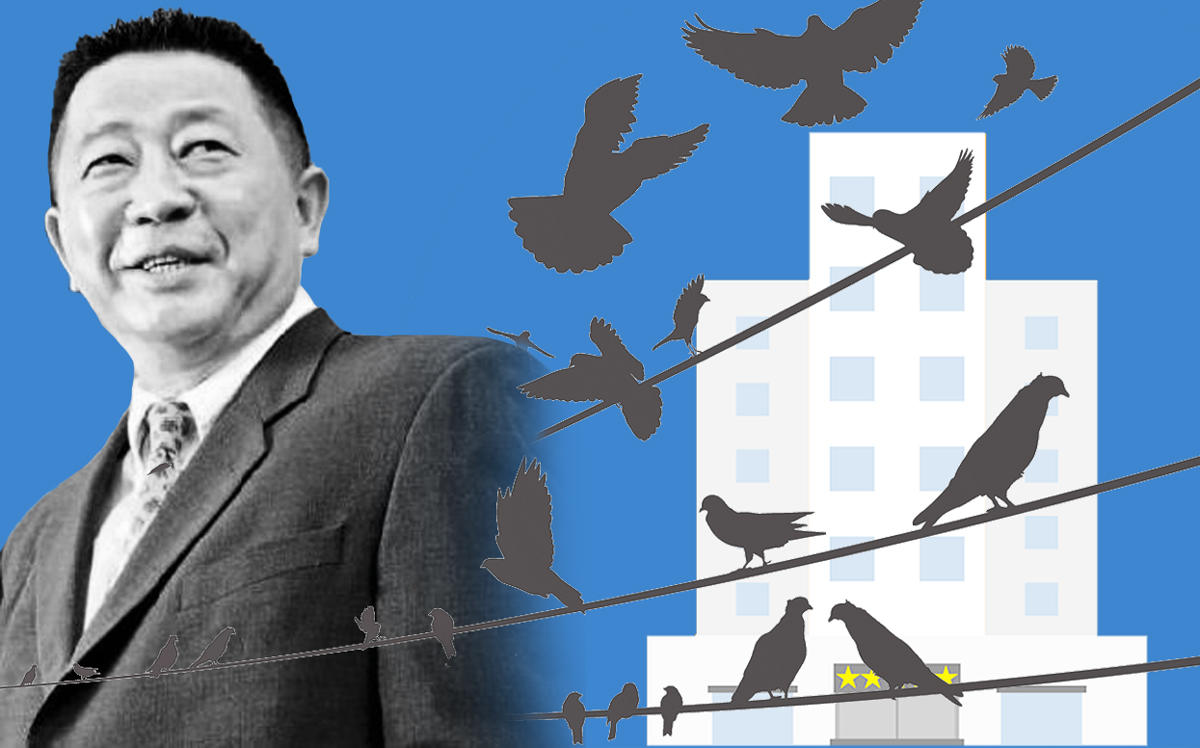One of New York City’s most prolific hotel developers is checking out.
Sam Chang, whose McSam Hotel Group helped pioneer a new class of budget hotel in the 1990s, began winding down his business last year, the Wall Street Journal reported. And a new law restricting hotel development in manufacturing zones was a major factor in his decision.
“They are pretty much putting me out of business,” Chang told the Journal, referring to the lawmakers behind the rezoning. “That rezoning put me in my retirement.”
The developer has not bought a development site in 12 months, and is reducing his hotel holdings from 31 to 10.
Chang now plans to spend more time racing pigeons, a hobby he picked up as a boy in Taiwan, where he now owns hundreds of homing pigeons. Competitions involve thousands of pigeons flying hundreds of miles in a series of races, with more than $1 million in prize money on the line. One pigeon cost Chang as much as $25,000.
The future budget hotel king moved to Los Angeles from Taipei at the age of 17, and opened and sold 30 restaurants in the early 1980s. After moving to Connecticut, Chang and his partners picked up 15 hotels at an auction during the savings and loan crisis.
After filing for bankruptcy in 1996 due to failed casino investments, Chang began developing hotels in New York. Before then, “there was not a product out there for the budget-minded either business or leisure traveler,” said developer Scott Barone, who has worked with Chang on several projects.
As a developer of limited-service hotels that generally employed nonunion staff, Chang often found himself at odds with the New York Hotel Trades Council, who backed the recent rezoning.
McSam Hotel Group has opened more than 70 hotels in New York City, and has sold 50 of them by Chang’s count. The developer is currently wrapping up a 165-key hotel on Fifth Avenue near Koreatown, which will be his most expensive project yet, featuring 17 luxury rentals, a restaurant and a spa.
“It’s always been my dream to own a hotel on Fifth Avenue,” Chang said. [WSJ] — Kevin Sun
